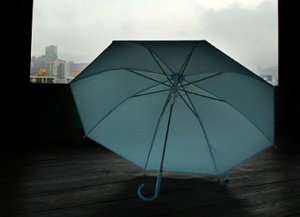Bing vs. Google offers a side-by-side comparison that lets users see for themselves which search engine works better. We tried some searches, and our findings are inside.
comparisons
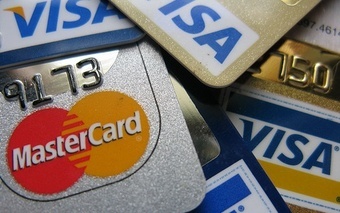
Which Credit And Debit Cards Are The Best To Use Overseas?
Spending money costs money when you’re abroad, but a list of cards and fees compiled by USA Today can help you decide which card to pack before you leave.

Is It Cheaper To Make Or To Buy? Six Foods Tested
Jennifer Reese decided to make six common food items and then determine whether it was better to go the homemade route or to buy from the store. We briefly considered making our own crackers last month in a fit of anger over how expensive generic saltines have become, so we’re glad someone did the research for us.
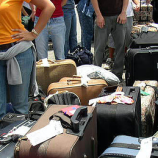
Here's What The Airlines Are Charging For Luggage
Daniel at dansdeals.com has put together a chart of baggage fees for 22 US and Canadian airlines. Spirit takes the prize for most expensive, but there are a dozen contenders for second place. The best: Southwest, Air Canada, Porter and WestJet. If you travel with lots of luggage, you may want to bookmark this page for future reference the next time you’re purchasing tickets.
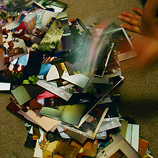
Kodak Gallery Improves Its Photo Storage Policies, Becomes A Valid Option Again
We recently trashed Kodak Gallery, and rightly so, for providing the least value of any online photo storage/printing service. Now we take that back, because with a simple change to their terms, they’ve suddenly become a viable choice again—provided you meet a couple of conditions.
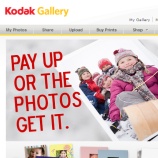
Kodak's Overpriced Photo Site Will Delete Your Photos If You Don't Spend Money
Kodak Gallery is a poor choice for online photo storage. As of this month, they’ve changed their storage policy so that now you must spend a minimum amount—$4.99 or $19.99, depending on whether you’re under or over 2GB of storage—every 12 months or your pics will be deleted. By comparison, Shutterfly has no minimum spending requirement and unlimited storage.

How Does Facebook's TOS Compare To Other Social Networking Sites?
If you’ve been following the Facebook story over the past couple of days, you know by now that Facebook has said that they are not claiming ownership of uploaded user content: “We certainly did not—and did not intend—to create any new right or interest for Facebook in users’ data by issuing the new Terms.” But blogger Amanda French decided to actually compare the fine print for several social networking sites—MySpace, Flickr, YouTube, LinkedIn, Twitter, and Picasa—and she concludes that “Facebook’s claims to your content are extraordinarily grabby and arrogant.” Read her side-by-side comparison here.
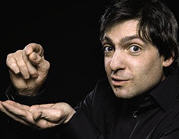
Why You're Not A Logical Consumer
CNNMoney has an interesting interview with behavioral economist, Dan Ariely. In the interview, Dan talks about how price comparison (which we take for granted as a “good” habit for consumers to engaging in) may not be very helpful after all. Ha!

6 Photo Printers Reviewed
We don’t really print photographs much anymore—most of the time, there’s some display we can show them on, and for the rare times we want physical copies, it’s cheaper to order through an online service like Shutterfly than deal with the total cost of owning a photo printer. But maybe you’re more retro than that or need instant gratification with your pics, in which case you might want to read Slate’s side-by-side showdown of six different photo printers.
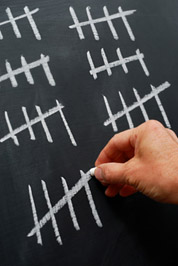
Congress Asks FCC To Accurately Count U.S. Broadband Homes
Congress has added its voice to the growing number of critics who have noted that the FCC is misreporting broadband penetration in the U.S. According to eWeek, last Wednesday a House subcommittee “approved legislation to change the Federal Communications Commission’s methodology for determining deployment.” The FCC currently counts a single home in a zip code as representative of the full zip code—so one home having broadband access is considered the same as every home in that area having broadband access. By doing this, they inflate the number of homes with broadband access and present a picture of increased “natural” competition in the market, which is then used by telecoms and lobbyists to argue against policy decisions that don’t favor existing corporations.
../../../..//2007/10/11/if-you-want-decaf/
If you want decaf coffee on the go, your best bet is McDonald’s, says Consumer Reports: cups from Dunkin’ Donuts, Starbucks, and Seattle’s Best Coffee varied unpredictably, spiking as hight as 20-30 mg of caffeine per serving, while McDonald’s was consistently under 5 mg. [Consumer Reports]

Which Compact Fluorescent Light Bulb Is Right For You?
Popular Mechanics compared an incandescent bulb to seven compact fluorescent light bulbs (CFLs) to see which was brightest performer. The light emitted was rated after participants examined “colorful objects, faces, and reading materials.” The good news? Every CFL outperformed the incandescent bulb.
The results surprised us. Even though the incandescent bulb measured slightly brighter than the equivalent CFLs, our subjects didn’t see any dramatic difference in brightness. And here was the real shocker: When it came to the overall quality of the light, all the CFLs scored higher than our incandescent control bulb. In other words, the new fluorescent bulbs aren’t just better for both your wallet and the environment, they produce better light.
Compared to incandescent bulbs, CFLs use up to 75% less electricity, last ten times longer, and save up to $30 over the life of the bulb. Though each CFL had its strengths and weaknesses, the overall winner was the N:Vision Soft White bulb. — CAREY GREENBERG-BERGER
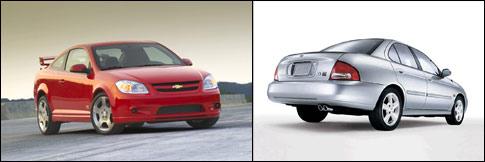
Buy a Sentra or a Cobalt?
“What’s better, a Nissan Sentra or a Chevy Cobalt?” queried a reader, noting they could get a fully equipped Sentra for $14,500 and a comparibly tricked-out Cobalt for $13,600.




